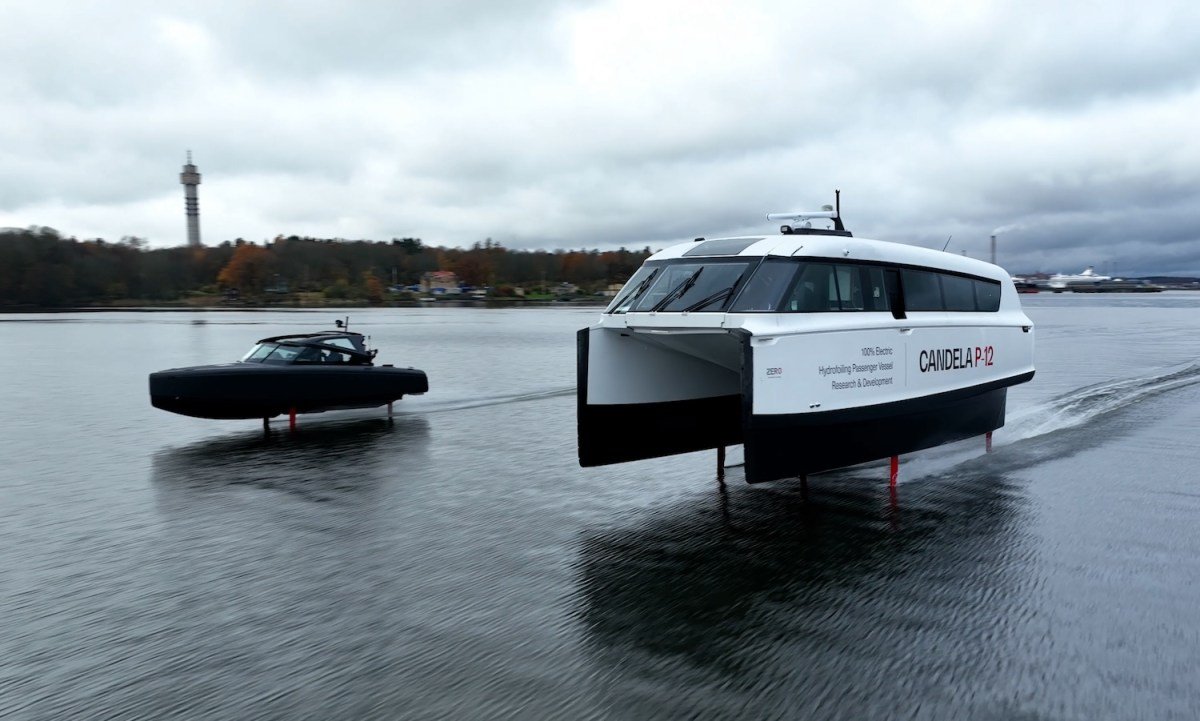Electric boat maker Candela is on the rise, swiftly accelerating with a fresh infusion of $25 million in funding and the debut of its P-12 ferry, which will soon begin operating in New Zealand. This remarkable company has its sights set on a global market for its incredibly efficient watercraft, and has successfully delivered dozens of vessels – an impressive feat in this industry.
For years, Candela has been steadily increasing the size of its boats. It all started with the C-7 and C-8, which were considerably smaller (measured in meters), but the company has now produced a total of 70 of these models as of this week. The latest addition, the P-12, is a ferry designed to accommodate up to 30 passengers and made its debut late last year.
“The company has global ambitions for its highly efficient boats, and has completed and delivered dozens of them – which is a lot in this industry!”
Recently, the P-12 was assigned its first task: transporting people around Lake Manapōuri in New Zealand, a popular destination known for its scenic beauty but also home to the country’s largest hydroelectric power station. This means that employees at the power station can now commute to work via environmentally friendly boats instead of traditional cars, reducing emissions by an estimated 240 tons per year. Not only is this a step in the right direction for the environment, but it also helps to keep the lake clean and quiet.
- The P-12 ferry is Candela’s latest addition to their lineup of highly efficient boats.
- It can accommodate up to 30 passengers and made its debut late last year.
- There are now a total of 70 C-7 and C-8 vessels in production.
International interest in Candela’s innovative boats is showcased by Groupe Beneteau, a renowned boating company with over a century of experience, participating in the funding round. In a press release, CEO Bruno Thivoyon stated:
“Investing in Candela aligns with our company’s ecological transition objectives, scaling up innovative solutions for more sustainable boating.”
Many established boating companies are incorporating electric engines and cutting-edge technology, as discussed by Brunswick’s Dave Foulkes at CES. He highlighted that partnerships between large and smaller companies are mutually beneficial – the smaller companies need the resources and reach of established ones, while the larger ones benefit from readily available technology. Like any other industry, knowing when to buy or build is crucial, and the major boating companies are more than willing to invest in promising ventures.
Candela’s boats utilize hydrofoils and electric engines mounted on the bottom to glide above the water’s surface at high speeds, significantly reducing energy consumption – a long-standing challenge in the electric boating industry. To maintain stability, these vessels require a powerful autopilot system. While the company assures its effectiveness, some may wonder how the boats would handle collisions with logs. However, the benefits of this design outweigh any potential drawbacks.
I had the opportunity to drive one of Candela’s boats in Seattle over the summer, keeping a watchful eye for logs in Elliot Bay, which are known to be common in the area. Impressed by its performance, I couldn’t help but think that replacing gas-guzzling passenger ferries with P-12s would be a game-changer. Candela isn’t the only company targeting this market; Navier is also vying for the attention of coastal communities with promises of silent and energy-efficient transportation, currently ferrying Stripe employees around the Bay Area. And while Zin Boats has been relatively quiet, they have been actively establishing markets for the latest version of their vessel.
The $25 million funding round was led by Beneteau, with contributions from EQT Ventures, Ocean Zero LLC, and Kan Dela AB.








